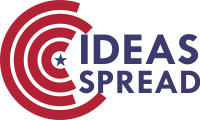Mother Tongue and Learning Environment as Students’ Predictors of Academic Achievement in Reading Comprehension
Abstract
The study examined mother tongue and learning environment as students’ predictors of academic achievement in reading comprehension. This study adopted an ex-post facto design. The population consists of all senior secondary school students in Ijebu-North and Ijebu-Ode Local Government Area of Ogun State. A multi-stage random sampling technique was employed in selecting the sample. Four (4) senior secondary schools were randomly selected from each of the Local Government Area, making a total number of eight (8) senior secondary schools. Stratified random sampling technique was adopted in selecting 50 students from each of the selected senior secondary schools, 25 students each represent the gender totaling 400 students selected for this study. The instruments used for this study were two instruments, a questionnaire and an achievement test on reading comprehension. Kurder-Richardson 21 formula was used to obtain the inter-item reliability coefficient of 0.72 and items on achievement test on reading comprehension was extracted from a past questions of Ogun state unified examinations on English Language. The data analysis involved multiple regressions Analysis. The results were tested at 0.05 level of significance. Based on the findings, it was deduced that there is no significant composite influence of mother tongue and learning environment on students’ achievement in English Language. There is no significant relative influence of mother tongue on students’ achievement in reading comprehension. Part of the recommendations made was that teachers should be encouraged in using mother tongues in teaching. Teachers should cultivate a positive perception towards the use of English in school.
Downloads


This work is licensed under a Creative Commons Attribution 4.0 International License.
Copyright for this article is retained by the author(s), with first publication rights granted to the journal.
This is an open-access article distributed under the terms and conditions of the Creative Commons Attribution license (http://creativecommons.org/licenses/by/4.0/).









1.png)









1.png)











